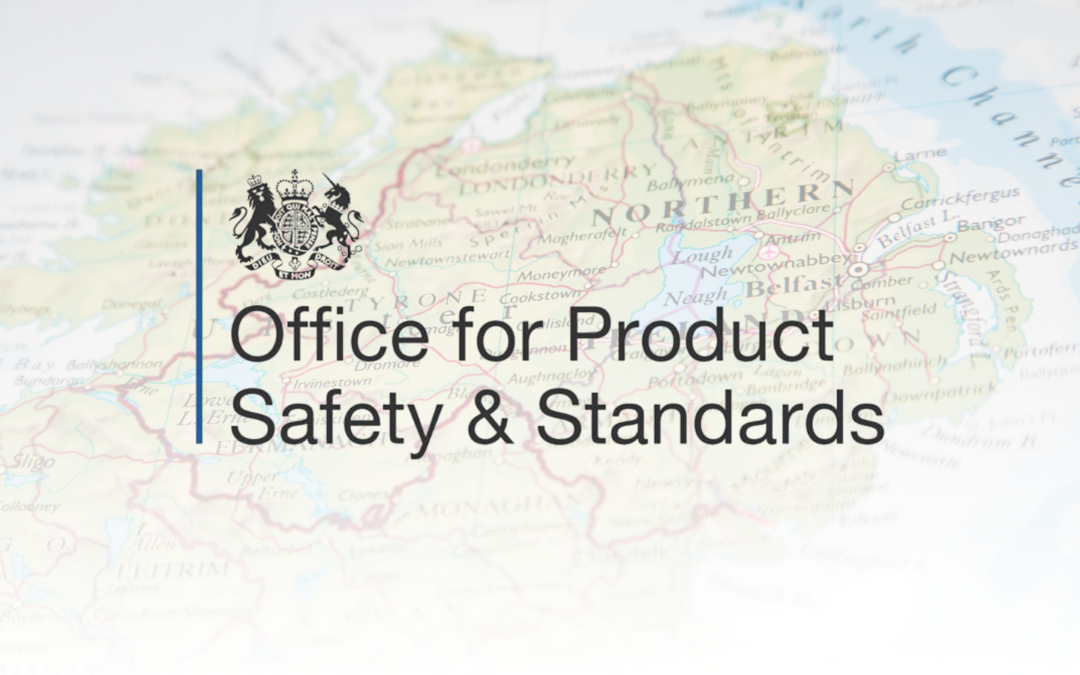
by Oscar Venus | 8 Aug, 2023 | Drylining, Labour, Skills
Sector Based Work Academy – West London College
Registration – Friday 22nd September, 10am
Starts – Monday 25th September, 10am
Location – Southall Community College , Beaconsfield Road, Southall, UB1 1DP
What we are asking members to do is to support with the work experience and guaranteed job interview
✔Pre-employment training – focusing on requirements for the construction sector
✔Relevant sector ‘tickets’ including Health and Safety
✔Work experience placement – a great opportunity for a business to identify talent and for the individual to cement their knowledge and understanding of the required role
✔A guaranteed job interview or help with an employer’s recruitment process
Sector-based work academies are a valuable resource for those looking to transition into a new field of work. These academies provide training and education to individuals who are currently receiving unemployment benefits, with the goal of preparing them to apply for jobs in a different sector.
The placements offered through sector-based work academies are specifically designed to meet the immediate and future recruitment needs of employers. By providing individuals with the skills and knowledge necessary to succeed in a particular field, these academies help to recruit and sustain a workforce that is equipped to grow and develop a business.
Overall, sector-based work academies are a powerful tool for both job seekers and employers. They provide a pathway for individuals to transition into new fields of work and help businesses to find employees with the right skills to thrive.
The 2 Week program is designed with the aim of preparing individuals for employment in the construction sector. The program is made up of various components including pre-employment training, sector tickets, work experience placement and guaranteed job interviews. These components are put together to ensure that individuals are equipped with the necessary skills and experience to succeed in the construction sector.
Pre-employment training is an important aspect of the program as it focuses on the requirements for the construction sector. During this training, individuals will be taught about the various roles in the sector and the skills required to succeed in these roles. The training will also cover topics such as health and safety, communication and teamwork.
Relevant sector tickets, including health and safety, will also be provided to individuals as part of the program. These tickets are important as they demonstrate that individuals have the necessary skills and knowledge to work in the construction sector. Employers in the sector often require individuals to have these tickets before they can be employed.
The program also includes a work experience placement which provides individuals with the opportunity to gain practical experience in the sector. This is a great opportunity for businesses to identify talent and for individuals to cement their knowledge and understanding of the required role.
Finally, the program includes a guaranteed job interview or help with an employer’s recruitment process. This ensures that individuals have the best possible chance of securing employment in the construction sector.
For more information or to sign up to the course please email Beena Nana

by Oscar Venus | 27 Jul, 2023 | Main News Feed
The Building Safety Regulator (BSR) is set to oversee the building control approval process for all higher-risk buildings from 1st October 2023. In order to ensure the ongoing safety of residents, the BSR will also manage the safety of these buildings while they are occupied. To provide a clear overview of the new building control regime and the BSR’s role as the Building Control Authority, a free one-hour lunchtime webinar will be hosted on Wednesday 9th August from 12pm-1pm. The webinar will be hosted by Colin Blatchford-Brown, Operational Policy lead for Gateways and Building Control, and Jenny Hagan, Senior Policy Advisor for Gateways and Building Control.
The engaging and informative webinar is open to all those interested in the new building control regime, including designers, architects, local planning and building control authorities, building control professionals, private and public sector contractors, clients, principal accountable persons/accountable persons, developers, and industry organisations. Attendees will gain a deeper understanding of the new building control regime, the importance of duty holder roles, and the gateways. The webinar will also provide the opportunity to ask questions to the experts and receive a post-event copy of the presentation and a recording of the webinar.
Register for the webinar here

by Oscar Venus | 15 Jun, 2023 | Membership
The FIS Contractors Awards 2023 attracted a record crowd and was a fantastic celebration of our amazing community.
Discover the highlights of the FIS Contractor Awards that you may have missed.
You can see all the winners here.
It was also the first time that the FIS community got to hear from their new president, Philip Brown.
You can read Phils Speech
Our CEO, Iain McIlwee also spoke on the FIS’s current and future initiatives.
You can read Iain’s speech here
Below we have included some of the photos from the day.
You can see all of the photos on our FIS Facebook Page here
Congratulations to the winners and again all who made the shortlist, thanks to the judges, Tony Pieri, Colin Hunter, and Robert Fry. Thanks to our headline sponsor Ecophon, our Award sponsors Minster, SIG, CCF, British Gypsum, Zentia, Nevill Long, Protektor and Euroform. And also our event sponsors Forza Doors, EPD Insulation Group, Fire DNA, Muffle, SPIT, Go Interiors and QIC Trims.
Thanks all for making this an extra special celebration!

by Oscar Venus | 16 May, 2023 | Main News Feed
Since the year began the FIS team have been hard at work and achieved some brilliant results across out Technical, Business Development, Skills and Training, and Lobbying efforts. Here’s a short look back at the first 3 months of 2023
Key technical work
Business support and guidance
- New Best Practice Guide to help contractors and subcontractors improve cashflow and prevent costly and damaging disputes
- New FIS Standard Terms and Conditions for England, Scotland and Wales launched
- Wage Rate and State of Trade Surveys published
- New QS helpline has been instrumental in a number of disputes being resolved positively.
Lobbying and representation
- Procurement Research published, and data featured in Times Article
- Responded to Fire Classification and BS476 withdrawal from Building Regulations
- FIS work on the interim review by the Migration Advisory Committee saw Dry Lining as the only trade reviewed and moved to the Skilled Worker list and a number of FIS Trades added to the Shortage Occupation List
- FIS invited to speak and support workshops hosted by the Construction Leadership Council, Department for Business and Trade and Small Business Commissioner on payment practices
- Invited to attend the inaugural Building Safety Conference, hosted by the Building Safety Regulator
- Responded to RICS professional statement consultation for whole life carbon
Skills and training
Key Events
- FIS Conference at Workspace Design Show at the Building Design Centre in Islington
- Hosted Inaugural FIS Innovation Awards
- Manchester Regional Meeting
- Webinar on Increasing circularity and reuse in fit-out projects
Download this doc here

by Oscar Venus | 14 Apr, 2023 | Technical
The code of practice detailing design and installation of dry lining systems on construction sites has been reviewed.
The Guide which was last reviewed in 1994 has been updated by a panel of experts and includes definitions on systems and terms and guidance for designers, guidance on quality checking as well as information on tolerances and how to inspect completed work.
The Code of conduct is a must have for anyone involved in the industry as it clearly defines tolerances such as 3mm on the crown of a joint so that disputes around the subject can be addressed quickly.
A full check list to sit alongside the Code is being developed to assist phased quality checks. When this is available FIS will be hosting a webinar to run through the changes and any impacts on our community.
BS 8000-8:2023 Workmanship on construction sites – Design and installation of dry lining systems. Code of practice now available on the BSI shop.

by Oscar Venus | 13 Apr, 2023 | Main News Feed
During last month’s Building Safety Regulator Conference a number of queries were raised which are summarised below.
- Confirmation that hospitals and care homes are not required to be registered with the Building Safety Regulator before occupation unless they contain at least two permanent residential units
- The developer remediation contract has now been signed by the majority of developers and the Department for Levelling Up, Housing & Communities (DLUHC) will be implementing a Responsible Actors Scheme
- Links to the enhanced Manual to the Building Regulations and online PDF of Approved Documents in the Approved Document B section.Build UK continues to update its Comprehensive Guide and these queries were added to the April 2023 version, published today.

by Oscar Venus | 13 Apr, 2023 | Technical
The government has consulted on a potential move from the BS 476 fire testing standard to the Europen standard EN 13501-1. This, without a doubt, will affect many stakeholders in the built environment.
BS 476 is well known across the industry and while some elements have some equivalence with European Standards many do not. Many areas of the industry rely on 476 while others question the equivalence of the European standard.
The CPA Chief Executive, Peter Caplehorn, will discuss its merits, problems and also possible solutions.
Sign up for the webinar here.

by Oscar Venus | 13 Apr, 2023 | Main News Feed, Market data
BSI have published their 2023 version of the Little book of BIM.
This is a quick reference guide for the standards, definitions and terms commonly used in describing BIM and its related processes, as well as training and qualification pathways for all levels. The guide can be used by organisations across the supply chain.
You can download a copy here.

by Oscar Venus | 13 Apr, 2023 | Main News Feed, Membership
To improve access to new technology and promote the impact that improved motivation and productivity can have in the drylining industry, FIS and Mafic are offering five FIS members the chance to trial Mafic’s FAIRPAY rewards platform.
The platform has been developed to help organisations increase productivity and reduce costs by 10-20% by improving the motivation of their workforce.
This inclusive offer worth £3,500 includes:
– 12 people
– 12 weeks
– Free setup
– Subscription costs discounted by 75% to £450+VAT
FIS members taking part will still need to fund the bonuses and incentives that go directly to employees. These incentives drive savings that are multiples of the cost – you reduce cost by paying your best people more money – and Mafic will help to structure this in a way that minimises risk by basing the incentives around improvement.
Based on results elsewhere, it is estimated that you could save £10,000-£20,000 on labour costs from the demonstration, plus other benefits like improved retention rates. You can see how FIS member Errigal Contracts has benefited from using FAIRPAY here on page 7.
Iain Mcilwee, FIS CEO said: We are supporting this offer with Mafic in return for anonymised data which will be shared with FIS (i.e. no names, sites, dates, or geographic data) to help us better understand productivity in the industry, so that we can better serve and support our members. Mafic has just five discounted projects available, so please express an interest early to avoid disappointment.’
For more information contact Ed Burns at ed.burns@mafic.ltd or call him on 07967 968 346.

by Oscar Venus | 23 Sep, 2022 | Main News Feed
You may be aware that the venue has changed for the AGM/Members Meeting on 6 October, which is now being held at Hill Dickinson LLP, The Broadgate Tower, London. This has opened up the opportunity for event sponsors to have a pop-up stand/table-top, as we now have more space.
We already have 50 plus members booked to attend. To book your place click here.
There are also opportunities still available to sponsor our other members meetings, taking place in Birmingham, Manchester and Glasgow.
If you are interested call FIS on 0121 707 0077 or email clairmooney@thefis.org

by Oscar Venus | 22 Sep, 2022 | Drylining, Main News Feed
Due to the great number of people who have boked to attend we have decided to move the venue so more of you can join us in person to The National Federation of Roofing Contractors (NFRC) venue at 31 Worship Street London EC2A 2DY Nearest tube is Old street or a short walk from Moorgate tube station.
There will be a light lunch and a chance to network from 12.30 and an opportunity to look and discuss new products from SpecWall and RawlPlug
The full agenda can be found here
- Compliance – Publication of the Building Safety Act in April
- Building Systems and Fire Walls – avoid delays at Gateway 2
- Deflection head details – how to avoid non-compliance and legacy issues when installing
- BS8000-8 standard. Guidance on design and tolerances in installation for drylining, to be published later this year
- Research project findings – the cause of creaking in tall residential towers in high wind conditions
- FIS vetting process – how it can support in managing compliance
- Competence management plans – toolkit to assist members implementing a plan
- Site Guide update – reducing waste and rework
We hope you can join us afterwards for a drink and a chance to network.
We look forward to meeting you all again, but please register early as space is limited.

by Oscar Venus | 14 Sep, 2022 | Main News Feed
The Cabinet Office has created a visual toolkit for partners, businesses, trade organisations, ALBs and the public sector during this time of mourning to show the country speaking with one voice of unity.
Click here to access

by Oscar Venus | 26 Aug, 2022 | Skills
Thousands of businesses can now apply for up to £15,000 to help retrain and upskill their workforce. The Scottish Government’s Flexible Workforce Development Fund provides workers in organisations of all sizes with access to training courses through local colleges, the Open University in Scotland and Skills Development Scotland. Now entering its sixth year, the fund is open to organisations who pay the UK Apprenticeship Levy and small-to-medium size business (SMEs). The initiative plays a crucial role in Scotland’s National Strategy for Economic Transformation, which outlines how the Scottish Government will work to develop the best economic performance possible over the decade ahead.
Youth Employment and Training Minister Jamie Hepburn said:
“We know times are tough for many businesses, so this funding will help them to continue investing in their workforce, addressing skills gaps and improving productivity. A skilled workforce is vital to the Scottish economy and we want as many businesses as possible to benefit from this scheme. For the first time, all eligible employers can access training available via local colleges, Skills Development Scotland and the Open University, tailored to their needs. This provides an incredible opportunity for workers to upskill at a time when many businesses are opting for new ways of working. I would encourage all Scottish employers to find out more about the opportunities available to them.”
The Flexible Workforce Development Fund (FWDF) was introduced in 2017-18 and aims to provide employers with flexible workforce development training opportunities tailored to their needs to support inclusive economic growth through upskilling and reskilling of employees. Full information on the fund is available on the Scottish Funding Council website.
Employers can contact the Scottish Funding Council (SFC) at fwdf@sfc.sc.uk or Skills Development Scotland (SDS) at fwdf@sds.co.uk for further information on this year’s fund. Apprenticeship Levy-paying organisations will be able to access upskilling support to the value of £15,000, and non-levy paying SMEs up to £5,000. An independent evaluation of the fund was carried out in academic year 2021-22. The results will be published this autumn. More information on Scotland’s National Strategy for Economic Transformation
If you need information on funding available for skills, training and qualifications contact Marie Flinter on 07799 903103 or email marieflinter@thefis.org

by Oscar Venus | 25 Aug, 2022 | Health and Safety, Technical
The Building Engineering Services Association (BESA) has issued an urgent warning to all contractors over the safety of fire dampers.
Inspections by maintenance contractors found that a “huge number of dampers” had been incorrectly installed and would fail to work during a building fire.
BESA’s head of technical Graeme Fox has urged contractors to “alert their clients immediately” so that rectification works can begin.
The issue revolves around the use of self-drilling “tek” screws which have been used to install an unknown number of dampers in projects. The screws have a higher melting temperature and do not melt if a building is on fire.
“This means that spring-loaded dampers will not be released to contain the spread of fire within the zone and ensure the integrity of the fire stopping measure,” Fox explained.
“Dampers must be secured by fusible fixings that allow the duct to break away, otherwise the collapsing duct could pull the damper out of place and break the seal between the fire zones,” he added.
BESA published a special announcement on the subject. It includes updated guidance and statutory requirements covering installation, testing and maintenance of fire dampers and smoke dampers.
The document also highlights clients’ legal obligations to ensure their fire safety systems remain fit for purpose in line with the Regulatory Reform (Fire Safety) Order 2005 for England and Wales and the Fire Safety (Scotland) Regulations 2006.
Fox said: “While this is clearly a very worrying situation, we can take some reassurance from the fact that this problem is being brought to our attention by the increasing frequency of fire damper inspections and tests as awareness grows of this extremely important issue.”
The latest BESA technical advice can be found here.

by Oscar Venus | 25 Aug, 2022 | Contractual and Legal, Lens Blog, Main News Feed
This is the first in a series of short blogs by FIS Consultant, Len Bunton on contractual and commercial issues he experiences when supporting FIS members and the wider community – it is designed to help FIS Members avoid common traps and build on our focus on collective experience.
There is nothing worse for sub-contractors than doing work on site and not getting paid for it. So how does that come about, and what can you do about it. The first thing FIS members need to do is to read the terms of the sub-contact you are offered, to identify any high-risk issues. If you are too busy, then there are plenty of experienced folks out there who can do it for you. Once potential problem clauses are identified, then you can raise these with the employer/contractor and try to negotiate these out. What happens if they wont budge, well I tell my clients jut to walk away, its not worth signing up to something that could put you out of business.
One area I want to focus on relates to site instructions and variations. A FIS member sent me a sub- contract recently where it states that you don’t carry out variations without a written variation instruction from the contractor, then they won’t be accepted, and if you do carry out the work then you won’t be paid. Now on many may occasions, you are working away, and the site manger says, “will you take down that ceiling and reboard it please as its been damaged by other trades.”……

by Oscar Venus | 25 Aug, 2022 | Sustainability
Working with Birmingham University FIS have been offered a limited number of places on a new and exciting Net Zero Together training course that will support businesses in improving sustainability within their business and on their projects. The course is aimed at individuals employed or are part of an organisation and wish to become “sustainability champions” in their organisation. In order to be eligible for the funded place the participants would ideally reside in the West Midlands area or carry out a substantial proportion of their work in the region. The participant must have the support of their organisation and be employed by that business.
Structure of the Course
The first half of the course will be looking at the fundamental understanding and useful information about Sustainability, Net-Zero, and Life Cycle Assessment (LCA). This will be achieved through various teaching media including: virtual seminars; discussions; reading; and podcasts, to name a few.
The second part of the course will focus on the project work. The participants will be grouped into teams of 4-5 people. One of the organisations represented by a member in each group will be selected for the whole team to act as consultants in producing (or building upon) a sustainability plan for that organisation. For this part of the course, instead of weekly seminars there will be consultancy opportunities with industry and academic experts so the participants can ask more specific questions related to their particular project and gain greater insight and skills. The groups will then produce and deliver a presentation on their project at the end of the course at the Exchange.
In order to be eligible for the Skills Bootcamp Net Zero Together you will need:
- A letter of recommendation from your line manager or someone in a similar position.
- To demonstrate a role in the sustainability agenda in your company or that this course will help you become more involved.
- To be aged 19 or over.
- To have the right to work in the UK.
- To live in the West Midlands.
- To meet residency requirements.
Timings
September 2022 intake: To be eligible for assessment, your application must be complete and submitted before: Wednesday 14th September 2022. Before submitting your application, please make sure it is complete. Otherwise, your application will not be reviewed.
January 2023 intake: To be eligible for assessment, your application must be complete and submitted before: Wednesday 4th January 2023. Before submitting your application, please make sure it is complete. Otherwise, your application will not be reviewed.
Next Steps
FIS Sustainability Champion Flavie Lowres: “I know the team at Birmingham and they are doing great work. This is an amazing opportunity to develop knowledge within your business and our community and it would be great to see FIS Members grab it with both hands).
Places are limited and this is likely to be a very popular course – if you are interested in nominating a member of your team contact: Flavie Lowres flavielowres@thefis.org

by Oscar Venus | 20 May, 2022 | Main News Feed
As you will have no doubt seen in recent news, the Government has announced it will introduce legislation to fix the Northern Ireland Protocol, which will act as a safeguard should the UK be unable to agree proposals with the EU through negotiations.
The legislation being introduced would remove customs processes for goods moving within the United Kingdom. It will allow businesses to choose to follow either UK or EU regulations under a dual regulatory approach, removing barriers to goods made to UK standards from being sold in Northern Ireland and cutting the processes that drive up costs and disincentives businesses. The legislation will fix issues so that people in Northern Ireland can benefit from the same tax and spend policies as everyone else in the UK. The UK has also made clear that goods which are destined for the EU will continue to undergo full processes applied under EU law as they do now and apply safeguards to avoid non-compliant products entering the EU Single Market.
You do not need to take any action now as we will continue to operate within current “standstill” arrangements, meaning you can move goods in exactly the same way as you do today, including existing grace periods and easements. Furthermore, you can continue to trade frictionlessly across the island of Ireland. The UK Government will be working closely with businesses as the new arrangements are developed and will communicate how any changes will work well before any changes come into effect.
Office for Product Safety and Standards

by Oscar Venus | 21 Apr, 2022 | Main News Feed
The Employment Allowance has risen from £4,000 to £5,000, meaning businesses can now employ four full‐time workers on the National Living Wage without paying employer National Insurance Contributions (NICs). This is expected to benefit around 52,000 businesses in construction.

by Oscar Venus | 21 Apr, 2022 | Main News Feed, Sustainability
Duty to report
Organisations with more than 500 employees and a turnover over £500 million are now required to report climate‐related financial information on an annual basis. The Department for Business, Energy & Industrial Strategy (BEIS) has published guidance to help organisations understand how to meet the new requirement.
This is likely to impact many companies in the finishes and interiors sector supply chain. Whilst most won’t be reporting, they will likely be under greater pressure to supply information and data to their larger clients.
Plastic Packaging Tax
The UK Government has introduced the Plastic Packaging Tax. This Tax came into force on 1st April 2022 and will be charged at a rate of £200 per tonne. The tax applies to ’packaging that contains more plastic by weight than any other single material’. However, packaging that contains at least 30% recycled plastic is exempt. For more details see the paper written by CPA here.
Need help complying, you can talk to the FIS Sustainability Champion on 0121 707 0077
Visit the FIS Sustainability Hub

by Oscar Venus | 21 Apr, 2022 | Main News Feed, Sustainability
The New Hospital Programme (NHP), which is developing 48 hospitals by 2030, has published the NHP Supplier Guide. The guide is aligned to the Construction Playbook and sets out what is important to the NHP ‐ better, faster and greener procurement ‐ and what it requires from its supply chain to realise the opportunities available. The guide, which will be updated regularly, follows publication of the first NHP commercial pipeline, which gives suppliers visibility of current and future contract opportunities on proposed projects up to 2024.
Commenting on the launch of the new Guide NHP Commercial Director, Emma-Jane Houghton stated:
“Traditionally each time we build a new hospital today, it’s effectively treated as a standalone scheme that fails to fully capture the opportunities to standardise design, leverage scale or foster long term sustainable growth within the UK supply chain.
The NHP represents a dramatic shift from traditional ways of hospital building. We have a unique opportunity to create an infrastructure ecosystem that transforms the way hospitals are designed, procured and constructed.
The scale of the New Hospital Programme will call upon the skills and expertise of companies of all sizes, across a broad range of sectors.
This is an opportunity for businesses to make long-term investments in their capabilities, create jobs, drive growth and help in delivering world-leading experiences for patients and staff. We need to bring the right people and the right teams together to foster innovation and deliver hospitals of the future That’s why we’re calling upon the knowledge and experience of the widest breadth of suppliers from construction components, medical equipment and beyond.”
You can download the NHP Supplier Guide here
Page 14 of 17« First«...1213141516...>Last



































